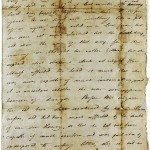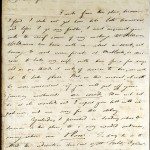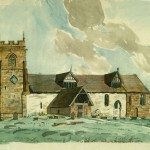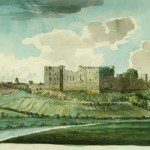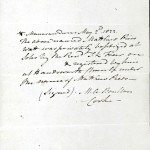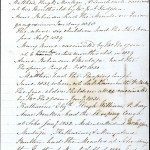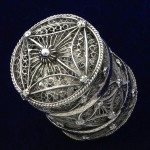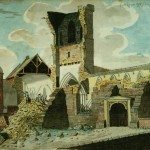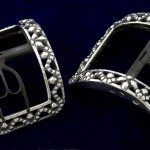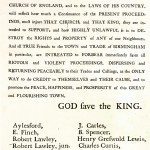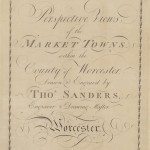Browse Times
1784-1791
1784
Henry Cort developed the puddling process for manufacturing iron.
1785
Edmund Cartwright developed the power loom for weaving. Engines produced by Matthew Boulton and James Watt were first used to power spinning machines in cotton factories. William Withering’s Account of the Foxglove and some of its medicinal uses was published. Anna Seward’s poem Colebrookdale was published.
1786
James Watt developed the centrifugal governor.
1787
Josiah Wedgwood helped to form the Society for the Abolition of the Slave Trade and he produced his medallion Am I a Slave and a Brother for the campaign.
1788
John Whitehurst died.
1789
Thomas Day died in Surrey.
1791
Priestley Riots. Destruction of the homes of Priestley, Baskerville and the homes of Withering, Hutton, the Taylors and others.
Joseph Priestley left Birmingham. Rebuilding of Jewish synagogue in Hurst Street, Birmingham. Catholic chapels and schools were legalised. Opening of the world’s first Irvingite or Swedenborgian chapel in Birmingham.
Articles in this time period
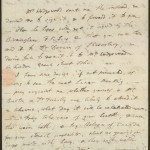
Letter from Erasmus Darwin to James Watt, 1788/11/18
Darwin writes to Watt concerning Watt’s health, with advice on treatments and remedies and various theories of… read more »
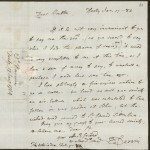
Letter from Erasmus Darwin to Matthew Boulton, 1784/01/17
Darwin writes to Boulton to request repayment of a loan and of the attempt of the Derby… read more »
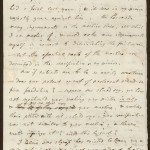
Letter from Erasmus Darwin to Matthew Boulton, 1785/01/26
Darwin writes to Boulton about Richard Arkwright’s difficulties over patents for his machinery. —————————————- Derby Jan 26-85… read more »
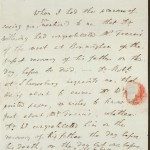
Letter from Erasmus Darwin to Matthew Boulton, 1789/01/18
A dispute had arisen between Darwin’s son, Robert, by 1789 a physician in Shrewsbury, and Dr. William… read more »
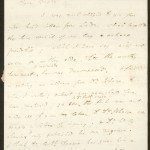
Letter from Erasmus Darwin to Matthew Boulton, 1789/03/12
Darwin writes to Boulton of his son, Robert’s dispute with Withering. —————————————- 12 March 1789 Dear Boulton… read more »
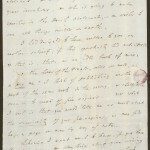
Letter from Erasmus Darwin to Matthew Boulton, 1789/10/22
Darwin writes to Boulton for information about steam engines and coining for Darwin’s latest poem, The Loves… read more »
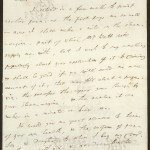
Letter from Erasmus Darwin to Matthew Boulton, 1789/12/31
Darwin writes Boulton for details of coining. —————————————- Derby Dec 31-89 Dear Boulton I intend in a… read more »
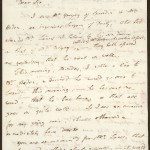
Letter from Erasmus Darwin to Matthew Boulton, 1791/05/09
Darwin writes to assure Boulton of the care being taken of a servant of Boulton’s, Mr Laws.… read more »
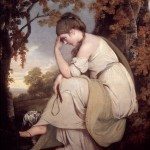
Maria and her dog Silvio (from Sterne’s Sentimental Journey)
Joseph Wright of Derby (1734-1797). Oil on Canvas. Image from: Derby Museum & Art Gallery
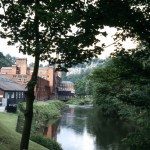
Masson Mill and the River Derwent, Matlock Bath near Cromford, Derbyshire
The picture shows the rural landscape in which many 18th century factories were located. The Derwent Valley… read more »
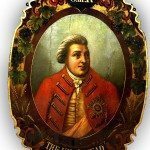
Matthew Boulton and Birmingham Silverware in the late 18th and early 19th centuries
Image: The painted sign for the King’s Head Inn, New Street, Birmingham showing the Head of George III.… read more »
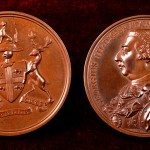
Matthew Boulton’s Medals and Coins on Russian Subjects
Image: Medallion of the Hudson’s Bay Company. 1820. Designed by Conrad Heinrich Kuchler. An example of the high… read more »
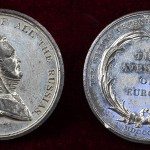
Medals and Coins of Alexander I
Image: Medallion of Alexander I, Emperor of all the Russias. 1812. Image from: Birmingham Assay Office (256) The coronation… read more »
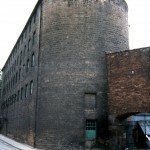
Mill and Warehouse Building, Cromford, Derbyshire
This five-storey building was built in 1785 to 1790. The four upper floors contained machinery for spinning.… read more »
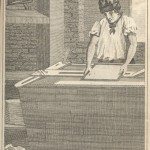
Papermaking
Image: Paper Maker, from The Book of Trades or Library of Useful Arts, part III, third edition (London Tabart… read more »
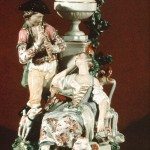
Pastoral Group, c.1770
The group with a shepherd playing his pipe to a sleeping shepherdess is a good example of… read more »
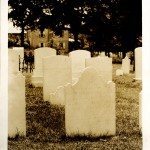
Photograph of gravestone of Dr Priestley in Cemetery of Northumberland, Pennsylvania
Image from: Joseph Priestley Collection by Samuel Timmins, Birmingham City Archives.
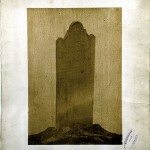
Photograph of Joseph Priestley’s gravestone
Image from: Joseph Priestley Collection by Samuel Timmins, Birmingham City Archives.
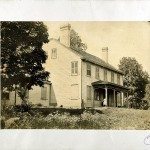
Photograph of Joseph Priestley’s house in the United States of America
Image from: Joseph Priestley Collection by Samuel Timmins, Birmingham City Archives.
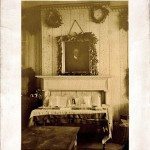
Photograph of portrait of Joseph Priestley
Image from: Joseph Priestley Collection by Samuel Timmins, Birmingham City Archives.
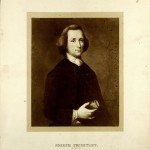
Photograph of portrait of Joseph Priestley at the age of 30
Image from: Joseph Priestley Collection by Samuel Timmins, Birmingham City Archives.
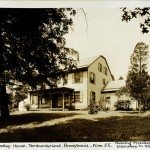
Photograph of Priestley House, Northumberland, Pennsylvania, from South-East, showing Priestley’s Laboratory
Image from: Joseph Priestley Collection by Samuel Timmins, Birmingham City Archives.
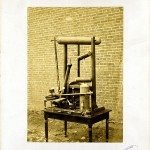

Photograph of scientific instruments
Image from: Joseph Priestley Collection by Samuel Timmins, Birmingham City Archives.
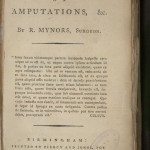

Practical Thoughts on Amputations: 1. Frontispiece and Introduction
Robert Mynors, a pioneer of surgical treatment in 18th century Birmingham Robert Mynors was one of the… read more »
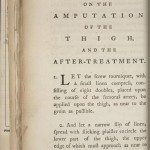

Practical Thoughts on Amputations: 2. Amputation of the Thigh and After Treatment
ON THE AMPUTATION OF THE THIGH AND THE AFTER-TREATMENT 1. Let the screw tourniquet, with a small… read more »
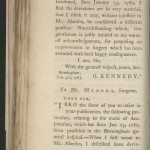

Practical Thoughts on Amputations: 3. Observations and Illustrations
[70] Observations and Illustrations To Mr. MYNORS, Surgeon. DEAR SIR “I BEG the favor of you to… read more »
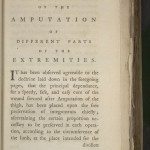

Practical Thoughts on Amputations: 4. Of the Amputation of Different Parts of the Extremities and Diseased Tumors
[79] OF THE AMPUTATION OF DIFFERENT PARTS OF THE EXTREMITIES It has been observed agreeable to the… read more »
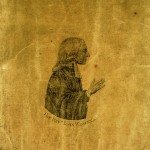

Priestley and John Wesley
Image: Portrait of John Wesley struck off by electricity by Joseph Priestley Image from: Birmingham City Archives, Priestley… read more »
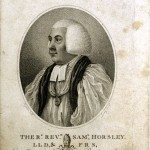

Priestley and the Church of England
Image: Bishop Samuel Horsley, one of Priestley’s main Anglican opponents. Image from: Birmingham City Archives, Priestley Collection by Samuel… read more »



Priestley in Northumberland, Pennsylvania
Image: Joseph Priestley House, Northumberland, Pennsylvania, from the south-east showing Priestley’s laboratory Image from: Birmingham City Archives, Priestley Collection… read more »
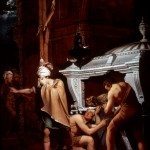

Priestley: Body, Matter and Death
Miravan Breaking Open the Tomb of his Ancestors (1772). Joseph Wright of Derby(1734-1797), Oil on canvas. Derby Museum &… read more »
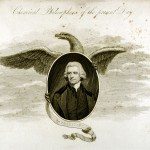

Priestley’s Arrival in America
Image: Chemical Philosophers of the Present Day, Dr Priestley. The apotheosis of Joseph Priestley. The scientist ascends into… read more »
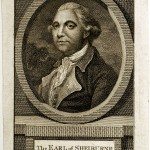

Priestley’s Early Career
Image: The Earl of Shelburne, Priestley’s patron from 1772 to 1780 Image from: Birmingham City Archives, Priestley Collection by… read more »
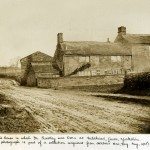

Priestley’s Origins
Image: Birthplace of Joseph Priestley, Fieldhead, Leeds, Yorkshire. Image from: Birmingham City Archives, Priestley Collection by Samuel Timmins Joseph… read more »
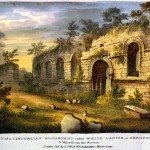

Remains of a Cistercian monastery called White Ladies in Shropshire
From Picturesque Views of the Severn, 1824 by Thomas Harral
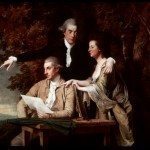

Rev. d’Ewes Coke and Family
Joseph Wright of Derby (1734-1797). Oil on canvas. Image from: Derby Museum & Art Gallery
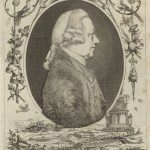

Richard Greene and 18th Century Museums
Image: Portrait of Richard Greene. Stebbing Shaw, History and Antiquities of Staffordshire, Vol.1 (London, 1798). Image from: Local Studies and… read more »
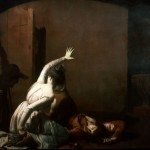

Romeo and Juliet, the Tomb Scene
Joseph Wright of Derby (1734-1797). Oil on canvas. Image from: Derby Museum & Art Gallery
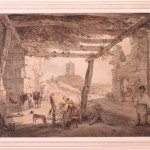

Ruins of Tutbury Castle
Water colour undated, Paul Sandby (1725-1809, b. Nottingham – d. London).



